Is Southeast Asia safe to Travel in?
Southeast Asia is a relatively safe region. Compared to western countries, there is very little physical crime that occurs. The most common injury for tourists is a scooter accident.
Table of Contents
ToggleIs Thailand Safe
Thailand is regularly ranking high in countries with the highest road fatalities. This is due to the relaxed driving standards as well as many tourists riding a scooter without proper licenses, experience, and knowledge about the roads.
What about other countries in Southeast Asia? Is Vietnam safe? Is Cambodia Safe? Is Malaysia Safe?
To answer your question with personal experience:
From five months of travel throughout the region, I never felt unsafe except for one strange experience that I don’t believe is a common occurrence.
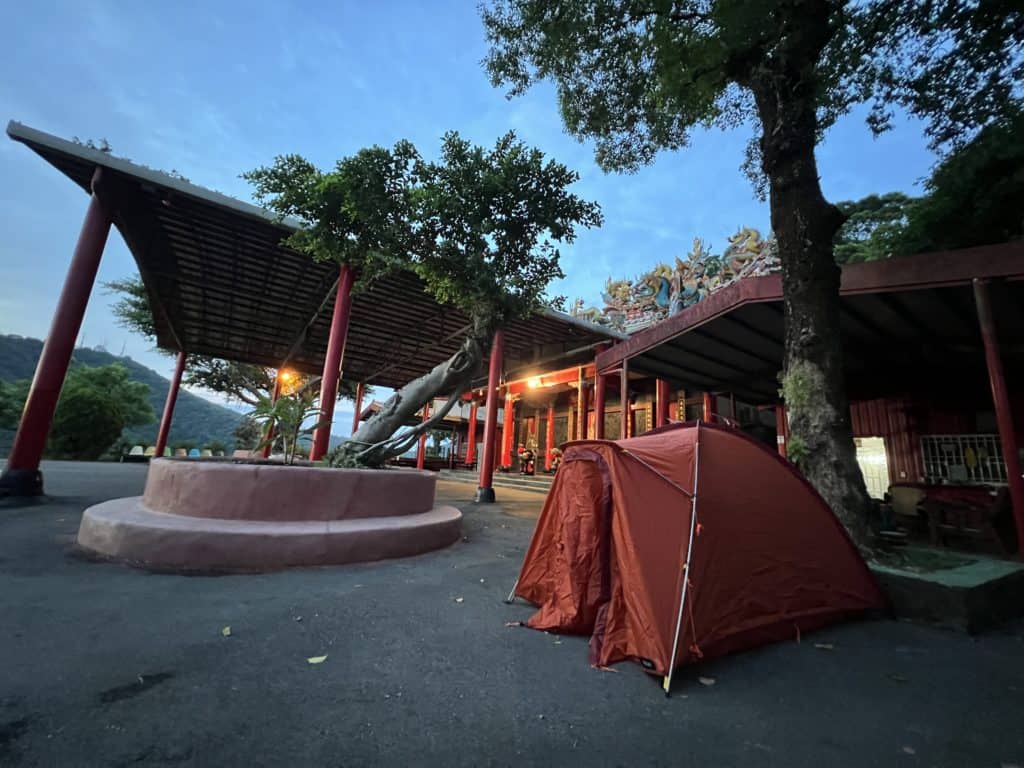
Other than that, no crimes that I experienced. I’ve walked around solo in many run down areas, had many intoxicated nights lost walking home, but never felt unsafe.
Petty crime is not so common in Southeast Asia
In Italy, you’ll see “beware of pickpocketing” messages every time you use a ticket machine. In most of Southeast Asia, you’ll see scooters with keys left in it. I would see keys left in scooters in Thailand and Vietnam quite frequently.
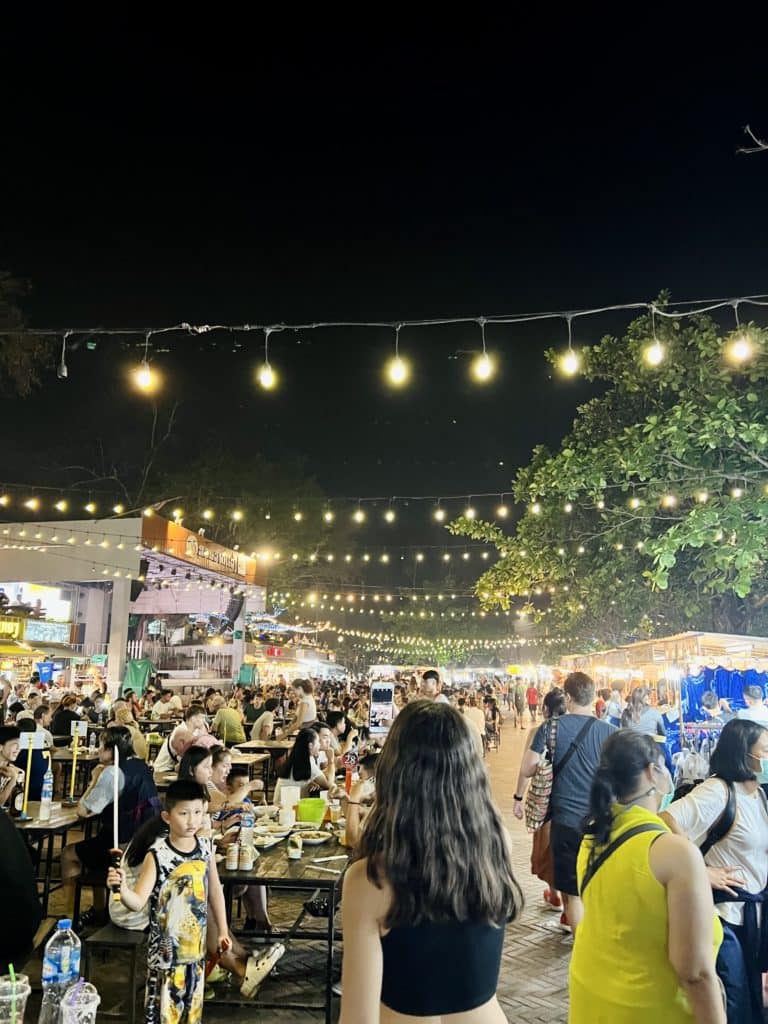
There are, however, certain places where you will be warned to stay street smart. In Cambodia, many locals I met told me to keep my phone in my pocket on the street as there are many opportunists who will snatch your phone. I personally still walked around with my phone out in Cambodia, and quite an expensive one, and had no issues. I have however met someone who has been pickpocketed in Phnom Penh in Cambodia, and have read on travel forums that Phnom Penh is notorious for phone pickpocketing and drive-by snatchings.
I highly recommend using a money belt. For only $10, you can keep your valuables much safer than in any other form.
It’s like a sleek fanny pack that you put under your clothes to store valuables. No chances of dropping your wallet or having a bag snatched.
Theft in hostels from others or hotels from the staff is something that I haven’t experienced or heard of in person, but I know that it is something that can happen and is good to take precautions with.
I found that the process for renting a scooter was a good indicator of theft in a country.
In Thailand, Cambodia, and Malaysia they would usually want a form of deposit to rent a scooter. This varies by shop, but most either require a passport, or a photocopy with a cash deposit. Some don’t accept photocopies at all. In Thailand and Cambodia, most places don’t check for your license. In Malaysia, they are much stricter and will make sure you are properly licensed to operate a motorcycle in your home country as well as carrying an International Driving Permit (IDP). This is also done in Ha Giang, in Vietnam.
In Laos, it was the same, and a few times, I would be handed an external chain with a lock to secure the wheel, and they would chain scooters together at night at many hostels. Laos felt safe in general, but it seems like businesses took precautions.
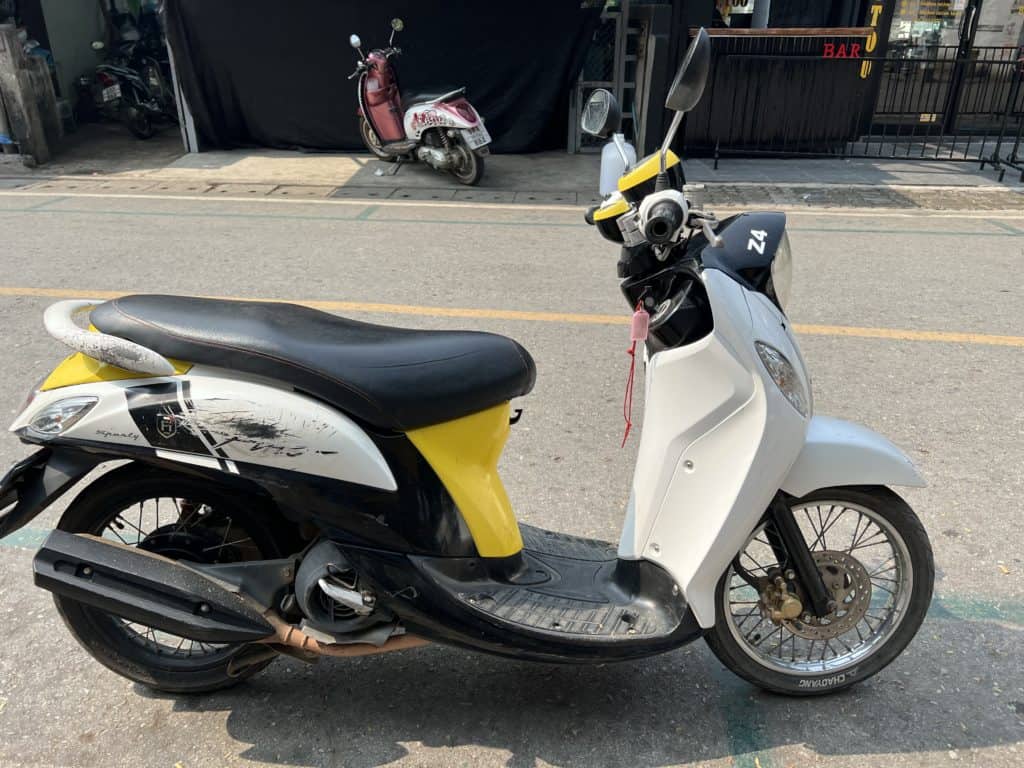
Vietnam was definitely the easiest place to rent a scooter. I also never felt unsafe around the welcoming people. I’ve had many times where there were no deposits needed to rent a scooter in Vietnam. I’ve even had a couple times where I would walk to a rental shop and ask about a bike, negotiate a price, and then they would hand me the keys no questions. I ask if they need to see my passport or a deposit, they look at me funny and say “no”. What about pay? “You can pay later”. It made me wonder if I was renting a stolen motorbike at times, but I never had any problems.
In general, Southeast Asia is quite safe.
Safety Riding a Scooter in Southeast Asia
The freedom of riding a motorbike around the tropics is something commonly seen in travel videos and is quite an exciting feeling.
But it is quite dangerous.
Bottom line is, it’s up to your risk tolerance. Many people illegally ride scooters, knowing or unknowing of the risks associated with it. To fully understand all of the risks involved in operating a motorbike in Southeast Asia, here is an in depth article.
Common Scams and Crimes in Southeast Asia
Most of your worries in Southeast Asia will be more related to scams rather than physical worries. To find out about what scams to worry about in Southeast Asia, read this article.
Travel Insurance
If you can’t afford Travel Insurance, you can’t afford to travel.
There are some great affordable travel insurances made specifically for long term travelers who don’t know when they will finish. This is great as many traditional travel insurances require you to have a return ticket back to your home country to insure you for a set amount of time in a set location.
Insurances such as Safety Wing offer emergency medical insurance for around $40 USD a month.
My personal choice of travel insurance is with World Nomads, who caters towards adventurous long term travelers. They cover a bit more such as personal belongings and injuries from more extreme activities not covered by basic emergency insurance. If you’re planning on doing activities such as surfing, diving, rafting, martial arts camps such as a muay thai camp, and many other activities, World Nomads is the best choice.
Here is an article on the best travel insurance for travelers.
How to Keep Your Things Safe While Traveling
You most likely won’t get robbed on the streets in Thailand or Vietnam, but there are a few precautions you can take.
After your own health, the next most important things are your valuables. For an in-depth plan on how to prevent disasters while carrying money traveling, you can read this article.
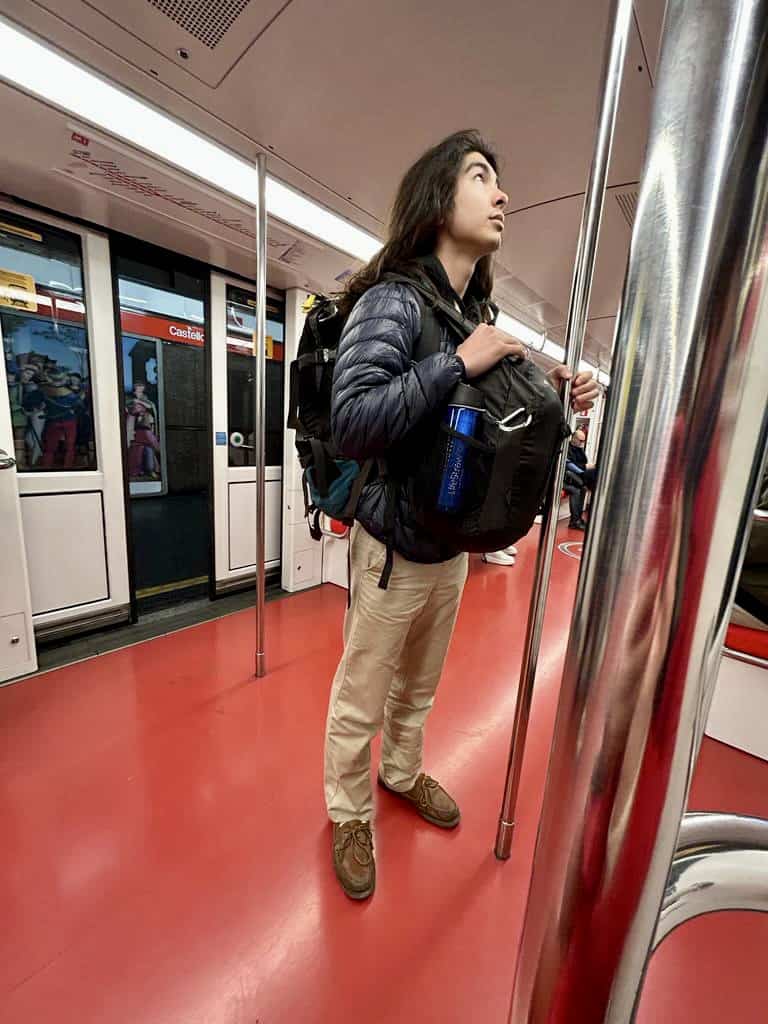
The basic premise is to diversify your money allocation and keep it safe. Keep at least two debit cards, put your cash in various locations, and wear a money belt.
Should I use a Money Belt while Traveling
A money belt is a wallet strapped around your waist hidden under your shirt. It’s safer than a wallet in protection against pickpocketing, as well as a wallet falling out of your pocket. While traveling, the last thing you want to do is to reach into empty pockets.
A money belt can be bought for less than $20 USD and can save you from a ruined trip.
Here is my personal money belt that I used for 8 months of travel.
Where to Keep Valuables while Traveling
After your health and money, you’ll have some valuables with you. If you’re carrying expensive gear such as cameras, laptops, or other crazy gadgets, it would be advised to get insurance for them.
As for your everyday valuables such as your passport, emergency cash, and baggage, there are a few tactics to live by.
Many hostels will provide lockers to secure your valuables while sharing your room. This is great, but in many cases, a hostel will not have a locker, or there will be a locker with a key provided, but no ring for your personal lock.
If you don’t feel safe with hostel staff being able to access your locker or if there is no locker, you’ll have to keep your valuables in your bag. Either case, you need to purchase locks.
Carry Various Locks While Traveling
The first precaution to take is to carry locks.
The most valuable tip I can give when choosing a lock is to buy only combination locks, preferably with 4 digits and not just 3 (a 3 digit combination lock can be opened pretty quick without knowing the combination). Carrying a key around can be an inconvenience, and losing a key can be even more inconvenient. If you’re blackout drunk and can still get into your bed, you’ll probably not have to worry about forgetting your lock’s combination.
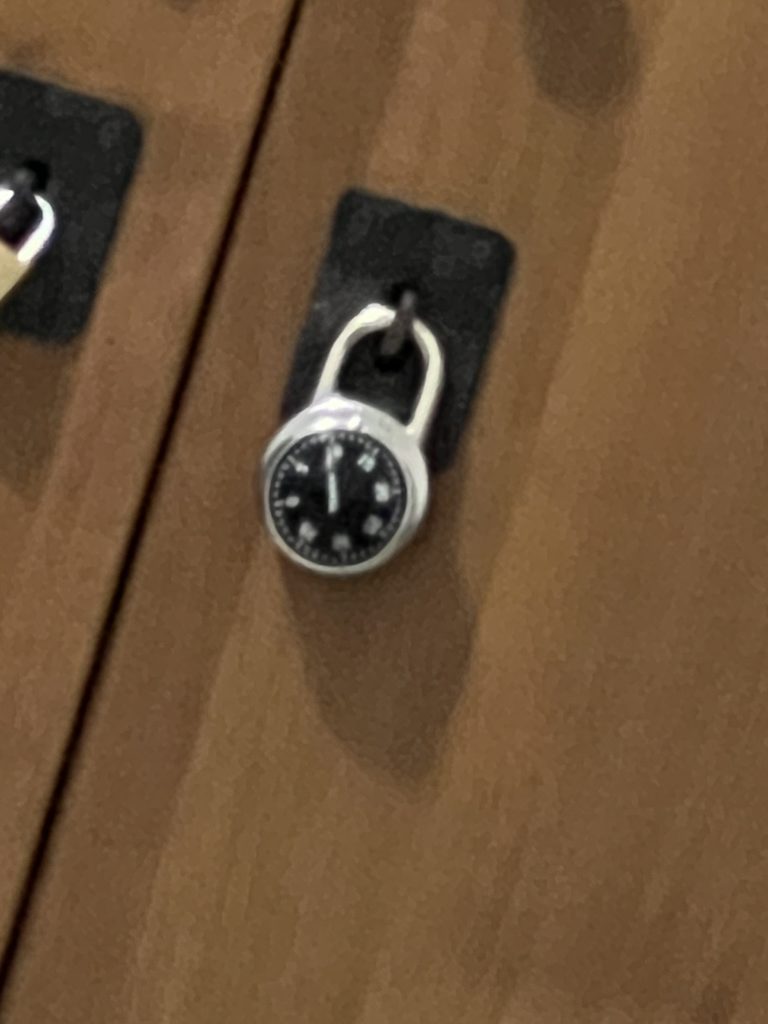
The holy trinity of Locks that I carried was one bigger combination padlock for lockers, a bunch of smaller tsa combination locks for my bags, and one safety cable or bike lock. Here are my recommendations for locks.
You honestly could just carry one lock, a small combination lock for a locker. A bigger padlock vs a small lock won’t change much since most theft is opportunistic anyways. The multitude of combination locks for bags and the safety cable is for your luggage, and most people in hostels don’t lock their bags since they only carry clothes and toiletries in their luggage anyways. It’s all up to you and your risk tolerance. I’d rather stay safe than sorry.
Padlock for Hostel Lockers
The bigger combination padlock is to keep your valuables safe in a hostel locker. When traveling in hostels, many will offer a locker to keep your valuables in. Great! Well, some will have a key with them, while others require a personal lock. Some have both.
You can stick with a bag lock to use as your locker lock, or use a bigger padlock. Be aware that there is no universal size, and bigger padlocks will not fit over many hostel lockers. I personally carried a combination padlock as well as smaller cable style combination locks for my bags that I would use for smaller hostel lockers.
Most hostels will sell you a personal lock, but it’s really cheap quality at a not as cheap price. Sure, locks are only a deterrent, and won’t stop a criminal after your belongings, but it does stop opportunists.
Most theft in hostels will be opportunistic. Even the smallest lock is better than none. Chances are, nobody is going to steal anyways. I’ve been in many hostels where people will leave expensive laptops and phones on their bed while away and have not heard any bad stories in person.
Small Combination Locks for your Bags
Small combination locks that are tsa approved are great to have on your bags at all times. It keeps opportunists out of your bag.
If you have some valuables in your bag, this is a must. If you keep your valuables in a locker and only have clothes and toiletries you don’t care about, you can skip out on multiple locks if you want.
Should you carry a safety cable or bicycle lock while Traveling
Why carry a safety cable? Well, there are times when hostels do not provide lockers, and you have to keep your valuables in your bag. Your bag lock may be fine, but a bag on the ground with a lock can easily be snatched by anyone, never to be seen again. At many budget hostels, there is absolutely no security that will prevent a stranger from walking into any room.
I personally carry a safety cable to tie my bag to a bed frame to prevent someone walking off with my bag. Sure, someone can always cut your bag or get through your lock. You don’t want your bag to look so locked up that there may be kilos of gold in there, but if my bag is just a little more secure than the others in the room who keep their bags wide open, it’ll deter opportunists.
Should you keep your passport in a locker or with you while traveling
Your passport is your lifeline while traveling and is difficult to replace. You should leave your passport locked with your valuables when it’s not needed and to carry a passport photocopy in your wallet at all times.
After meeting many other travelers, the opinions seem to be split 50/50. Every time I move hostels, I keep my passport on my person instead of in my baggage with other valuables. When traveling between accommodation quickly or for long rides, I tend to have my passport on me more than in a locker.
I realized after 8 months of traveling, this is a question that you may overthink while preparing, but isn’t as big of a deal once you get in the rhythm of traveling.
Keeping Yourself Safe on the Streets in Southeast Asia
Having basic street smarts and knowing the common scams will keep you safe in Southeast Asia. Thailand is busy with many tourist areas having some sales-people grabbing you, but not in a dangerous manner.

I’ve had times when I was getting used to a new country’s currency, I would accidentally hand them a higher bill because two bills are the same color. You won’t have this issue in Thailand, but Laos and Vietnam have some confusing notes to the untrained eye.
When I would accidentally hand the wrong amount, they would always show honesty and give it back. However, I have had one time in Laos. The taxi mafia at the slow boat exit in Luang Prabang tried to hand me the similar looking lower note while giving me change. We both knew that they were trying to pull a quick one on me because I called it out and they laughed and had the real bill prepared to quickly exchange. Nowhere else in my 5 months in Southeast Asia did I have this problem, but it’s good to keep a bit of alertness.
More basic street smarts that many don’t do is keep your eyes off your phone when out and about. If you’re using a GPS to get somewhere, memorize where you need to go and check every now and then, but don’t have your eyes glued to the map walking around.
Most likely, if you’re not looking for trouble, you won’t find trouble in Southeast Asia. Just keep your wits about you and you’ll be fine. Enjoy!